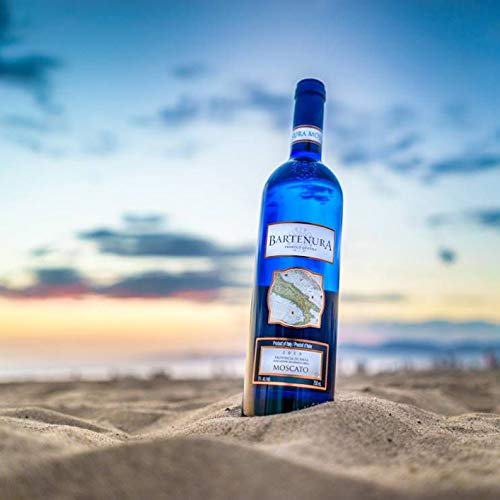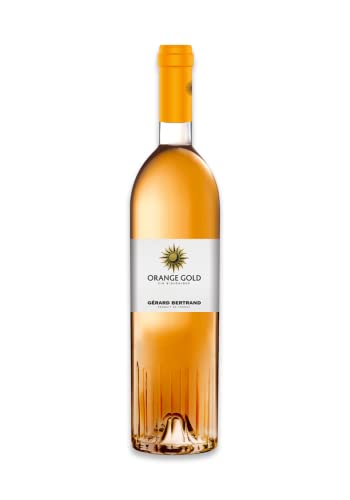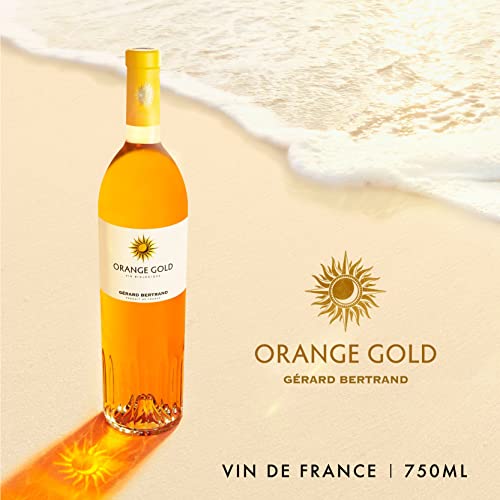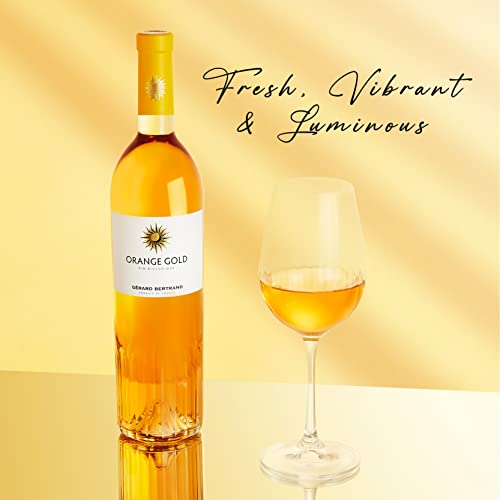Muscat Wine: Unveiling the Mystique
Post Disclaimer
*We may earn a commission for purchases made using our links. Please see our disclosure to learn more.
In this article, let’s embark on a sensory journey through the enchanting world of Muscat wine, where ancient grapes weave tales of rich history, diverse flavors, and unparalleled charm.
Overview of Muscat Wine
Before we dive into the world of Muscat, let’s look an overview. They’re made from the Muscat grape variety, known for its intense and distinctive aroma. The pleasant scent of grapes is characterized by a delightful blend of flowery, fruity, and musky aromas, frequently likened to the fragrance of orange blossoms or commonly known as “grapey.”.
Muscat wine is renowned for its unique qualities and has a rich historical significance. These wines can range from bone dry to lusciously sweet, exhibiting complex flavors of ripe fruit, honey, citrus, and spices. Additionally, Muscat grapes have a higher natural sugar content, making them particularly suitable for producing dessert wines.
Historical Significance
Moving on to the historical significance of Muscat wine, it dates back thousands of years. It is one of the oldest cultivated grape varieties, with origins traced to the ancient Egyptians and Greeks. Muscat wines have held great importance in Mediterranean and Middle Eastern societies, cherished by civilizations of old like the Greeks and Romans.
In fact, in the Middle Ages and the Renaissance eras, Muscat wines gained immense popularity, becoming a valuable and indispensable commodity in the wine industry. In particular,regions like Greece, Italy, France (particularly Beaumes-de-Venise), and Spain (particularly Málaga) produced renowned Muscat wines.
More importantly, Muscat wines are known for their versatility. They can be made in various styles, including still, sparkling, fortified, and dessert wines. This adaptability has contributed to their popularity across different regions and cultures. Muscat wines have also been associated with cultural traditions and rituals, often used in celebrations, religious ceremonies, and traditional medicines.
Consequently, many wine-growing regions worldwide continue to produce Muscat wines today. After all, the grapes are well-known for their distinct aromas, versatility, and historical significance, making them a cherished part of the global wine heritage.
Muscat wine serves as a testament to the timeless fascination with a grape variety that has enchanted taste buds for centuries, providing an impressive array of scents, tastes, and memorable moments.
My Top Picks and Recommendations
Elevate in the delightful taste of Bartenura Kosher Moscato d'Asti, a 750 ML bottle straight from the enchanting vineyards of Tuscany, Italy. Crafted with precision and care, this wine embodies the essence of Italian winemaking, sourced from the finest regions across the country. Its crisp and refreshing character, coupled with semi-sweet notes, tantalizes the palate with flavors of pear, tangerine, nectar, and melon that linger delicately on the finish. Whether paired with dessert, fresh fruit, or enjoyed leisurely by the poolside, this Moscato d'Asti promises a delightful drinking experience.
- Refreshing Taste: This Moscato d'Asti's refreshing profile makes it perfect for warm weather or post-meal enjoyment.
- Versatile Pairing: Its semi-sweet flavor pairs well with desserts, fresh fruits, or enjoyed solo.
- Authentic Italian Craftsmanship: This wine, from Italy's best regions, embodies rich tradition and expertise for quality.
Bartenura Kosher Moscato d’Asti
This sparkling Moscato d’Asti from Bartenura is a delightful and accessible expression of the Muscat grape, perfect for those seeking a kosher option. With its delicate bubbles and sweet, floral flavor, it’s a great choice for celebrations or casual gatherings.
Appearance: Pale yellow with fine, persistent bubbles.
Aroma: Intense and fragrant with notes of orange blossom, rose petal, lychee, and ripe peach.
Taste: Sweet and refreshing with a harmonious balance of acidity and sugar. Flavors of citrus fruits, honey, and a hint of spice linger on the palate.
Food Pairings: Pairs well with a variety of desserts, including fruit tarts, pastries, and creamy cheesecakes. It also complements spicy Asian cuisine and fresh fruit salads.
Overall: A charming and affordable kosher Moscato d’Asti that showcases the classic flavors of this popular Italian wine.
Sutter Home Fre Moscato 750ML Non-Alcoholic Wine by FRÉ is a testament to California's vineyards, presenting a captivating expression of the Muscat grape. This alcohol-free rendition preserves the beloved characteristics of Moscato, harmonizing sweetness and acidity for a versatile drinking experience. Whether it's an aperitif to start a meal, a complement to various cuisines, or a standalone sip, this offering encapsulates the essence of Moscato without the alcohol content.
- Versatility: Adaptable for diverse occasions and food pairings.
- Balanced Sweetness: Maintains Moscato's sweetness with controlled acidity.
- Alcohol-Free Option: Appeals to a broader audience seeking a non-alcoholic choice.
- Altered Flavor Profile: May differ slightly due to the absence of alcohol.
- Preference Limitation: Might not fully replicate the complexity of traditional Moscato.
- Expectation Shift: Altered experience for those accustomed to alcoholic wines.
Sutter Home Fre Moscato
Sutter Home Fre Moscato 750ML Non-Alcoholic Wine, crafted from California’s vineyards by FRÉ, embodies the quintessential Muscat grape’s versatile and invigorating essence. Despite being dealcoholized, it retains the balanced sweetness and acidity that make it an ideal choice for an aperitif, accompanying meals, or simply enjoyed on its own.
Appearance: Presenting a clear and vibrant liquid, reminiscent of a classic Moscato.
Aroma: Intensely fragrant, boasting aromatic notes reminiscent of orange blossom, rose petal, lychee, and ripe peach.
Taste: Refreshingly sweet with a perfect harmony of acidity, preventing an overly cloying sensation. It delights the palate with flavors of citrus fruits, honey, and a subtle touch of spice.
Food Pairings: Versatile in its companionship, this Moscato harmonizes well with an array of appetizers, salads, and lighter main courses. Its compatibility extends to complementing spicy Asian cuisines and fresh fruit salads.
Overall: Sutter Home Fre Moscato 750ML Non-Alcoholic Wine by FRÉ captures the essence of Moscato without the alcohol content. Its balanced sweetness and acidity render it an ideal choice for various occasions, promising an enjoyable and versatile experience.
Orange Gold, a 750-milliliter bottle of orange wine, exudes a fresh and spicy essence coupled with exceptional minerality. This aromatic blend boasts fruity notes of citrus fruits, mandarin, bloody orange, and a subtle spice, offering a delightful pairing with Indian curry, lightly spiced Asian dishes, and robust hard crust cheeses. Honored with a Wine Enthusiast score of 90 points in 2020, this wine is crafted from organic grapes, presenting a unique and flavorful experience.
- Complex Aromatics: Intriguing blend of citrus fruits and spices for a captivating aroma.
- Versatile Pairing: Ideal match for Indian curry, lightly spiced Asian cuisine, and robust cheeses.
- Acclaimed Quality: Received an impressive 90 points from Wine Enthusiast, indicating exceptional taste and quality.
- Distinct Flavor Profile: Might not suit those preferring more traditional wine flavors.
- Limited Pairing Scope: Specific suggested pairings may limit versatility for some preferences.
- Acquired Taste: Not universally appealing due to its unique spicy and citrusy notes.
Gerard Bertrand Orange Gold
Indulge in the unique allure of Orange Gold, a 750 milliliter bottle of fresh and spicy orange wine boasting a commendable minerality. This enticing blend offers a fruity bouquet, teasing the senses with hints of citrus fruits, mandarin, bloody orange, and a delicate touch of spices. Best suited for pairing with Indian curry dishes, slightly spiced Asian cuisine, or robust hard crust cheeses, this Orange Gold wine garnered an impressive 90 points from Wine Enthusiast in 2020, crafted from organic grapes.
Appearance: Radiant in its golden hue, inviting with its lively sparkle.
Aroma: The fragrance is a symphony of fruity delights, featuring prominent notes of orange blossom, rose petal, lychee, and ripe peach.
Taste: Delightfully balanced, offering a refreshing sweetness complemented by a nuanced acidity. The palate relishes in the fusion of citrus fruits, honey, and a subtle infusion of spice.
Food Pairings: Versatility takes center stage as it harmonizes effortlessly with appetizers, salads, and lighter main courses. Its magic extends to beautifully complementing spicy Asian dishes and fresh fruit salads.
Overall: Orange Gold embodies an intriguing interplay of freshness and spice, earning its place as a unique and enjoyable choice. Its ability to balance sweetness and acidity makes it a splendid companion for a variety of dining experiences and occasions.
VDV Alcohol Free Spar-kling Wine by ChromaCast presents a socially responsible and elegant alternative, dressed in a vibrant blue outfit, symbolizing a spirited essence. This de-alcoholized wine-based drink flaunts a shimmering golden-white hue with gentle floral notes, offering guilt-free celebrations and versatile indulgence suitable as an aperitif, dessert companion, or standalone refreshment. Crafted in France from 100% Muscat grapes, it promises sophistication and timeless elegance sans alcohol.
- Elegance & Versatility: Adapts seamlessly to diverse occasions while radiating sophistication.
- Guilt-Free Enjoyment: Offers a de-alcoholized wine-based drink for guilt-free celebrations.
- French Craftsmanship: Crafted in France from 100% Muscat grapes, ensuring sophistication without alcohol.
Veuve Du Vernay Zero Alcohol
Step into the realm of elegance and sophistication with VDV Alcohol Free Spar-kling Wine by ChromaCast. This refined and socially conscious alternative redefines elegance in a bright blue attire, offering a guilt-free celebration experience. Embracing a shimmering golden-white hue with delicate floral notes, this de-alcoholized wine-based drink captures a timeless essence, perfect for any occasion.
Appearance: Elegance redefined with VDV Alcohol Free Spar-kling Wine by ChromaCast, clad in a vibrant blue attire, symbolizing a spirited essence.
Aroma: Delight in zero guilt, all pleasure—a de-alcoholized wine-based drink shimmering in a golden-white hue, exuding gentle floral notes and captivating sparkle.
Taste: Revel in the perfect balance of indulgence and freshness. This beverage, whether an aperitif, dessert companion, or standalone refreshment, adapts seamlessly to diverse moments.
Food Pairings: Serve chilled at 8-10℃ to unlock its vibrant character, delivering a refreshing and delightful experience with each sip.
Overall: Crafted in France from 100% Muscat grapes, this sparkling gem embodies timeless elegance, promising a sophisticated celebration sans alcohol. This offering includes a 750ml bottle of Veuve Du Vernay Sparkling, accompanied by a phone and tablet holder, and tasting notes/recipes for an enriched experience.
Muscat: Origins and Historical Significance
Tracing the Roots of Muscat
Moving on to the origins, Muscat, Oman’s captivating capital, blends ancient history with mesmerizing charm. Its strategic location between mountains and turquoise waters fostered maritime trade since the 2nd century AD.
A thriving hub, Muscat has influences from Persian, Portuguese, and Ottoman cultures, shaping its vibrant traditions. From Mutrah Souq’s bustling energy to Al Jalali and Al Mirani forts’ grandeur, Muscat invites visitors on an immersive journey through its diverse and storied heritage.
Mythology and Folklore of Muscat Wines
The mythical origins of Muscat intertwine with gods and goddesses. Ashtar, the powerful goddess, founded Muscat, bestowing prosperity and protection. The sea goddess, Atargatis, blessed the city’s shores with abundant marine life. These legends enhance Muscat’s allure, adding an enchanting dimension to its ancient forts, vibrant markets, and breathtaking landscapes.
The Silk Road connection
As for the silk road, trade routes facilitated global distribution of Muscat vineyards, enabling exchange of grapevines and wines. Traveling merchants introduced adaptable Muscat grapes to diverse regions via these routes, leading to vineyard establishment worldwide. Muscat wines, renowned for their aromas, persist as a testament to trade routes’ enduring impact on viticulture’s global expansion.
Historical Milestones of Muscat Grape Wine
Muscat wine’s rich history includes captivating artists, gracing European courts, symbolizing wealth, and becoming a staple beverage. With its sweet aroma and esteemed reputation, it remains a beloved choice for celebrations, enchanting wine enthusiasts and preserving its timeless legacy.
Muscat Grape Varieties
The Muscat Family Tree
Now, let’s talk a bit about the family tree of Muscat.
The Muscat family tree showcases diverse grape varieties. At its core is the Muscat Blanc à Petits Grains, known for its floral aroma. It has offspring like Muscat of Alexandria, with larger berries and musky flavors, and Muscat Ottonel, known for intense aromas and crisp acidity. With sparkling and fortified varieties, the Muscat family tree offers a flavorful journey for wine enthusiasts.
Distinctive Characteristics
As for the Muscat grape varieties, they offer delightful sensory experiences. In particular, Muscat Blanc à Petits Grains entices with jasmine and orange blossom scents, citrus, peach, apricot flavors, and a touch of honeyed sweetness. Also, the Muscat of Alexandria brings a musky, tropical aroma, ripe melon, pineapple, and hints of spice. Explore the captivating Muscat journey!
Global Presence
When it comes to global presence, Muscat grapes excel worldwide, thriving in diverse terroirs. Adaptability shines in Spain’s sun-drenched vineyards or cooler German regions. Muscat yields an array of wines, from dry to sweet, unveiling a captivating mosaic of flavors across international cultivation.
Crafting Muscat Wine
In this section, we’ll tackle the making of Muscat wine.
Crafting Muscat wine is a fascinating journey that starts with vineyard cultivation. Muscat grapes thrive in warm climates with a long growing season, as they require plenty of sun to develop their distinctive flavors.
The soil must provide good drainage and mineral content, contributing to the grape’s complexity. Diligent vine management techniques, like canopy management and proper pruning, ensure the vines receive adequate airflow and sunlight.
And when the grapes reach their peak ripeness, the delicate art of harvesting begins. Muscat grapes are typically hand-picked to preserve their fragrant aromas. The winemaking process involves gentle pressing and careful fermentation methods, aiming to capture the grape’s essence while maintaining its natural sweetness.
The best thing is, Muscat wines span a spectrum of sweetness levels. From dry and off-dry expressions, showcasing floral and fruity notes, to lusciously sweet examples with honeyed flavors. As a matter of fact, some Muscat wines even undergo fortification, creating fortified wines with higher alcohol content and intense richness. Each step in crafting Muscat wine contributes to the creation of a delightful and unique drinking experience.
Aromas and Flavor Profiles
Now let’s delve into the scent and taste of the delicious grapes.
The aromatic symphony of Muscat wines is a delightful experience for the senses.The characteristic bouquet entices with the enchanting notes of orange blossom, rose petal, and lychee. And so with every sip, one can also discern the exotic essence of tropical fruits, adding a touch of allure to the wine’s profile.
Indeed, embarking on a taste exploration of Muscat wines is an adventure for the palate. These wines offer a vibrant array of flavors, ranging from the zesty tang of citrus fruits to the luscious sweetness of tropical varieties. Delicate hints of honeyed sweetness and a subtle touch of spice create a harmonious balance that keeps you coming back for more.
The beauty of Muscat wines’ versatility is it shines through when it comes to food pairings. Their natural acidity and fruitiness make them excellent companions for spicy Asian dishes, as they provide a refreshing counterbalance. On the other hand, their honeyed sweetness complements creamy desserts, creating a delightful contrast. Muscat wines truly elevate the dining experience, enhancing the flavors of various cuisines..
Unveiling Iconic Muscat Wine Regions
Let’s embark on a journey to uncover the allure of traditional Muscat wine regions in Europe.
Experience the enchanting Alsace region in France, where Muscat wines captivate with their floral notes. Explore the picturesque island of Samos in Greece, renowned for its sweet Muscat wines that reflect the island’s rich history. And don’t miss Pantelleria in Italy, known for its unique fortified Muscat wines. These regions offer a glimpse into the centuries-old winemaking traditions that have shaped Muscat wines in Europe.
Furthermore, in Australia’s Rutherglen, indulge in luscious Muscat wines that showcase the region’s warm climate and exceptional craftsmanship. And in California, be amazed by the diverse expressions of Muscat, from crisp and aromatic to delightfully sweet, crafted by innovative winemakers.
To make things interesting, journey to South Africa’s Klein Karoo, where Muscat wines flourish in the arid landscapes, delivering a harmonious blend of fruitiness and elegance. Without a doubt, these emerging Muscat wine regions outside Europe offer a fresh perspective on this beloved varietal.
Modern Trends and Innovations
In the modern era, Muscat in sparkling wines and cocktails has become a fascinating trend in the beverage industry. With its aromatic and fruity profile, Muscat grapes are perfect for creating refreshing and vibrant sparkling wines. In fact, Mixologists are also experimenting with Muscat-based cocktails, incorporating its distinct flavors into delightful concoctions that captivate the palate.
The good news is the world of wine is embracing sustainability, and Muscat wines are no exception. Natural and biodynamic Muscat wines are gaining popularity as consumers seek out environmentally friendly and ethical options. These wines are produced using organic farming practices and minimal intervention winemaking techniques, resulting in authentic expressions of the grape’s terroir and a more natural tasting experience.
To the delight of wine lovers, winemakers are pushing boundaries and exploring new horizons with Muscat grapes. Experimental expressions like orange Muscat wines, made from extended skin contact, showcase a unique hue and complex flavors.
Additionally, barrel-aged variations of Muscat wines offer intriguing layers of depth and richness, transforming the grape into something entirely unexpected. These innovations provide wine enthusiasts with exciting new avenues to explore and appreciate the versatility of Muscat.
Final Takeaway: Muscat Wine
In conclusion, Muscat wine’s enduring allure lies in its rich history, diverse range of flavors, and complex characteristics. From its ancient origins to modern-day production, Muscat wine continues to captivate both wine connoisseurs and curious enthusiasts alike. Its distinctive experience, with aromatic bouquets and unique flavor profiles, sets it apart from other varietals.
As we contemplate the profound intricacies of Muscat wine, we encourage readers to embark on a personal journey, immersing themselves in the realm of Muscat and discovering exquisite treasures as they delve deeper. Whether it’s a sweet dessert wine or a dry and refreshing option, Muscat offers a journey of discovery that is both rewarding and memorable.
FAQs
What is Muscat wine?
Muscat wine is a type of wine made from the Muscat grape, which is one of the oldest and most widely cultivated grape varieties in the world. Muscat wines are known for their sweet, floral, and fruity flavors, and they can range from dry to sparkling to fortified.
What are the different types of Muscat wine?
There are many different types of Muscat wine, but some of the most well-known include Moscato d’Asti, Rutherglen Muscat, and Jurançon. Moscato d’Asti is a sparkling Italian wine that is sweet and fragrant, while Rutherglen Muscat is a fortified Australian wine that is rich and honeyed. Jurançon is a dry French wine that is crisp and citrusy.
What are the best food pairings for Muscat wine?
Muscat wines are versatile and can be paired with a variety of foods. They are especially good with desserts, such as fruit tarts, pastries, and creamy cheesecakes. They can also complement spicy Asian cuisine and fresh fruit salads.
How should I serve Muscat wine?
Muscat wines should be served chilled, at a temperature of around 45-50 degrees Fahrenheit. This will help to preserve their delicate flavors and aromas.
What is the difference between Muscat wine and other types of wine?
Muscat wines are distinguished by their sweet, floral, and fruity flavors, which are a result of the Muscat grape variety. Other types of wine, such as Chardonnay and Cabernet Sauvignon, are made from different grape varieties and have different flavor profiles.
















